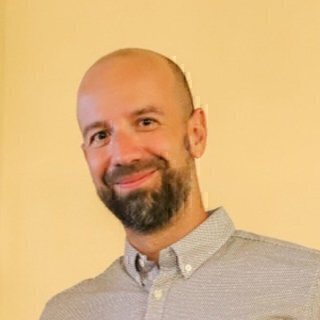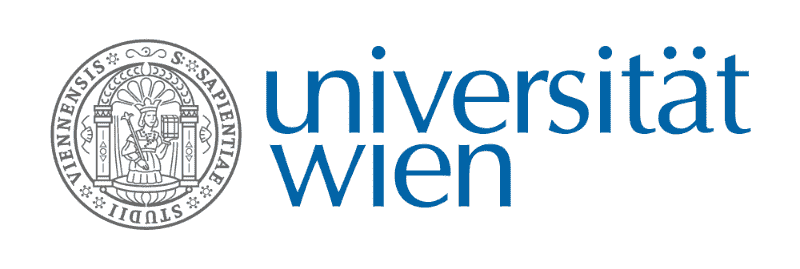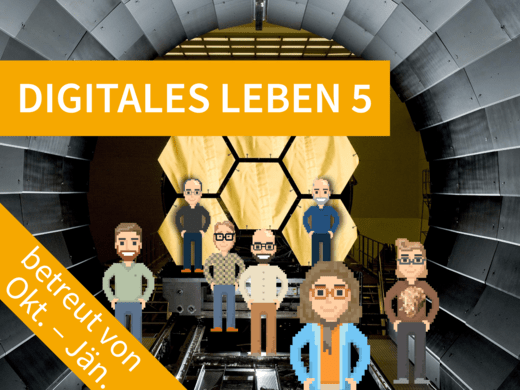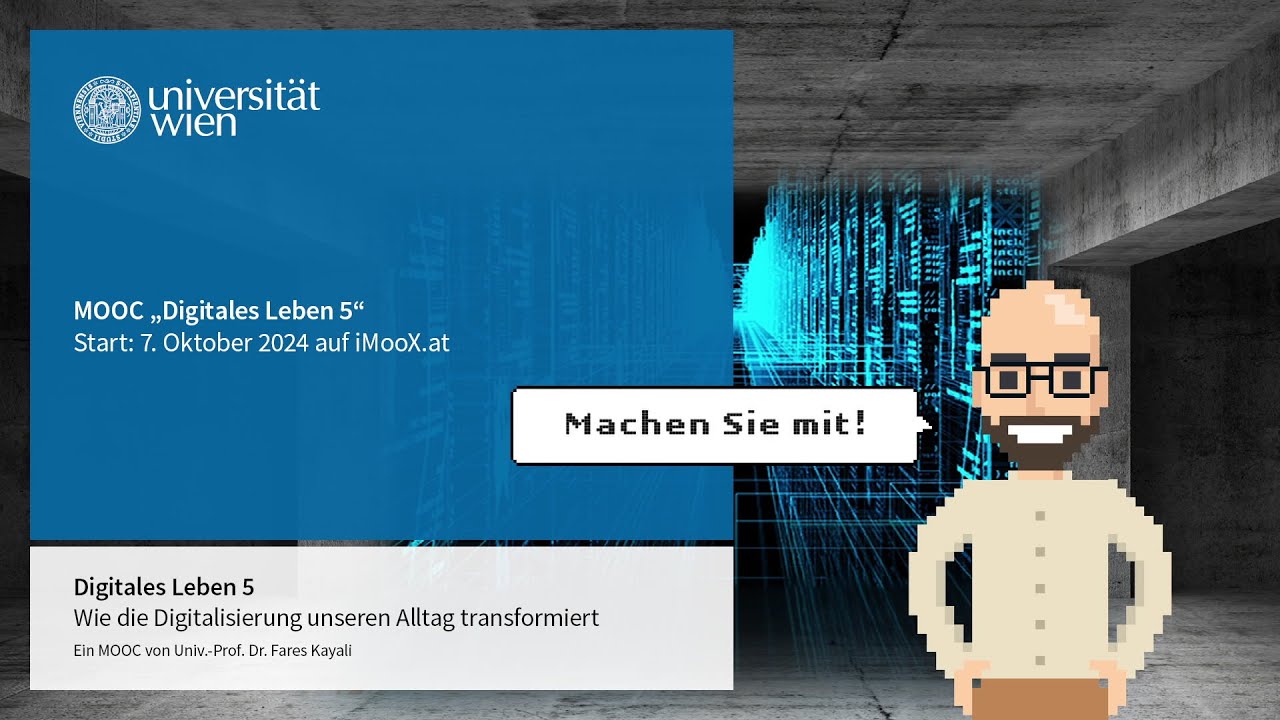Digital Life 5
Inicio del curso: 7. octubre 2024
Digital Life 5
Univ.-Prof. Dr. Fares Kayali
Este curso forma parte de una serie MOOC: Digital life – how digitization is transforming our everyday lives
Clasificación científica:
Inicio del curso: 7. octubre 2024
Digital Life 5
Univ.-Prof. Dr. Fares Kayali
Este curso forma parte de una serie MOOC: Digital life – how digitization is transforming our everyday lives
-
Duración: 5 unidades
-
Tiempo: 4 horas a la semana
-
Participantes actuales: 454
-
Licencia: CC BY-SA 4.0
-
Inicio del curso: 7. octubre 2024
-
Fin del curso: -
-
Estado actual: Curso en curso
-
Idiomas disponibles:
Tráiler
Detalles del curso
Contenido del curso
More and more people are digitally connected and interact with each other that way. But they are also interacting directly with the digital technology itself. How can this be done in an ethical, creative and sustainable manner? How are digital technologies already shaping working lives, social interactions and educational opportunities, and how will they do so in the future? In a total of 20 learning videos, the MOOC “Digitales Leben 5” (“Digital Life 5”) deals with visions of the future, knowledge management and interactions in the context of digitality. In 5 course units, 5 lecturers discuss the basic requirements for digital change, possible effects and practical examples from technical, philosophical, artistic and activist perspectives.
The topics of the 5 course units are:
- History, change and expansion of digital education
- Bodies, war, computers and other timeless ethical questions
- Challenges in human-robot interaction
- Art and technology as tools for society
- Future prospects for youth and online interaction in the age of AI
“Digitales Leben 5”, “Digitales Leben 4”, “Digitales Leben 3”, “Digitales Leben 2” and “Digitales Leben 1” form a MOOC series on various relevant aspects of the digital revolution and the related transformation processes. The numbers are not meant to indicate an order – as a learner, you can work on any of the “Digitales Leben” MOOCs first.
Objetivos de aprendizaje
After completing this MOOC, you will be familiar with key terms in connection with the digital transformation, the application of technologies, future developments and chances. You will develop your own points of view based on the speakers’ selected key points. The lectures will enable you to assess the risks and potentials of digital transformation processes, take a constructive and critical stance on digital change, and see yourself as an active part of the digital revolution.
Requisitos previos
We welcome participants’ initiative as well as their independent and interest-driven acquisition of knowledge. The course language is German. English language skills are required for some of the written sources (though reading them is optional).
Horario del curso
The MOOC consists of an introduction, and 5 course units comprising 4 learning videos each. Once you are actively enrolled in the MOOC, all units are available to you and you can work through them in any order you choose. Additional information and interactive elements such as reflection questions and prompts accompany the videos. To develop your own positions, we encourage you to use the forum – we will guide you with discussion prompts for each of the course units. For self-assessment (and for the iMooX certificate), there is a quiz with five questions per unit. Titles and lecturers of each course unit
Univ.-Prof. Dr. Fares Kayali
Priv.-Doz. Dr. Martin Ebner
Dr. Michael Funk, MA
Ass.-Prof. Dr. Astrid Weiss
Gerfried Stocker
Matthias Jax, MA
Certificado
Upon course completion, an automated certificate of participation will be provided, stating your username, the course name, the course duration and the amount of work involved. We would like to point out that this certificate will simply confirm that you have correctly answered at least 75 % of the self-assessment questions.
Licencia
This work is licensed under Creative Commons - gleiche Weitergabe 4.0 International (CC BY-SA 4.0)
Contenido adicional
Kursübersicht
- Lektion 1: Einführung
- Einführung Digitales Leben 5
- Spielerisches Element: Significant Terms
- Begriffspuzzle
- Lektion 2: E-Learning, Technology Enhanced Learning, Digitale Lehre
- Die Geschichte des E-Learning
- Die digitale Transformation der Lehre
- Die Rolle der offenen Bildungsressourcen
- o Digitale Lehre ohne Grenzen
- Lektion 3: Künstliche Intelligenz und Gesellschaft – hat Zukunft Ethik?
- Künstliche Intelligenz – Ethik oder Panda-Diplomatie?
- Leib und Körper – neue Räume für neue Elefanten?
- Krieg und technologischer Fortschritt – neue Wölfe in alten Pelzen?
- Zukunft – sei (k)ein Papagei!
- Lektion 4: Zukunft der Interaktion: Mensch-Roboter-Beziehungen in der Digitalen Welt
- Über Verkörperung und Materialität
- Über Anthropomorphisierung und Soziomorphisierung
- Wo Mensch-Roboter-Interaktion zum Einsatz kommt
- Verantwortungsvolle Innovation: Gestaltung der Zukunft mit Robotik
- Lektion 5: Digitale Kultur – kann Technologie die Welt verbessern?
- Technologie und Kultur
- Von Automatisation zu Autonomisation
- Art Thinking
- Digitaler Humanismus
- Lektion 6: Jugend, Aktivismus, Vernetzung: Digitale Bildung im KI-Zeitalter
- Künstliche Intelligenz im Alltag
- Digitale Zukunft
- Die Zukunft des Online-Miteinanders
- Wissensvermittlung
- Abschluss
Copyright
The course image of the MOOC “Digitales Leben 5” was created by the CTL University of Vienna and is licensed under CC BY-SA 4.0 (https://creativecommons.org/licenses/by-sa/4.0/legalcode).
Background image: Original title: Architecture technology cosmos. Description: A tunnel lined with metal plates. At the end of the tunnel is a mirror of a space telescope, in the form of six golden hexagons arranged in a honeycomb pattern. Author: unknown. License: CC0 1.0 (https://creativecommons.org/publicdomain/zero/1.0/legalcode). Origin: https://pxhere.com/de/photo/923246. Changes: cropped, retouched, added text element and avatar graphics.
The trailer of the MOOC “Digitales Leben 5” was created by the CTL University of Vienna and is licensed under CC BY-SA 4.0 (https://creativecommons.org/licenses/by-sa/4.0/legalcode).
Note: The references must be retained if the licensed material is reproduced and/or distributed in whole or in part, or if modified material is created, reproduced and/or distributed.
Instructor del curso

Univ.-Prof. Dr. Fares Kayali
Lecturers
Priv.-Doz. Dr. Martin EbnerEducational Technology
TU Graz
Dr. Michael Funk, MA
Cooperative Systems
University of Vienna
Matthias Jax, MA
EU project saferinternet.at
Austrian Institute for Applied Telecommunications (Vienna)
Gerfried Stocker
Artistic director
Ars Electronica (Linz)
Ass.-Prof. Dr. Astrid Weiss
Human-Computer Interaction Group
TU Wien
Socios



